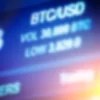What is a Spot Trade:
A spot trade refers to the purchase or sale of financial instruments, such as currencies, commodities, stocks, or cryptocurrencies, for immediate settlement and delivery on the spot. In the context of spot trading, the transaction is executed “on the spot” or at the current market price. The settlement typically occurs within a short period, usually within two business days.
Key features of spot trades include:
Immediate Settlement: Unlike some other types of financial transactions that involve future delivery or settlement at a specified date, spot trades are settled immediately or within a short timeframe.
Current Market Price: The trade is executed at the prevailing market price at the time of the transaction. The exact price may vary slightly due to bid-ask spreads or price fluctuations, but it is generally close to the current market rate.
Physical Delivery (For Some Assets): In certain markets, spot trades involve the physical delivery of the underlying asset. For example, in the commodity market, a spot trade for gold would mean the immediate exchange and physical delivery of the gold.
Cash Settlement (For Some Assets): In some cases, spot trades may be cash-settled, meaning that the actual asset is not physically delivered, but the profit or loss from the trade is settled in cash.
Spot trades are commonly used in various financial markets and play a fundamental role in day-to-day trading activities. They are particularly prevalent in the foreign exchange (forex) market, where currencies are bought and sold for immediate delivery. Traders, businesses, and financial institutions engage in spot trades to conduct international trade, manage foreign currency exposure, or simply to take advantage of short-term price movements.
It’s important to note that spot trading is different from “futures” or “forward” trading, where contracts are created for future delivery or settlement at predetermined prices and dates. In contrast, spot trades offer immediate liquidity and are suitable for investors and traders who require immediate access to the underlying asset.












 DISCLAIMER: The content published on this website is not aimed to give any kind of financial, investment, trading, or any other form of advice. Cexrev.com does not endorse or suggest you to buy, sell or hold any kind of cryptocurrency. Before making financial investment decisions, do consult your financial advisor. DISCLOSURE: To ensure our site's review data always stays free & running up to date, sometimes we might receive a small commission if the reader purchases through our site links, at zero additional cost. Please refer to
DISCLAIMER: The content published on this website is not aimed to give any kind of financial, investment, trading, or any other form of advice. Cexrev.com does not endorse or suggest you to buy, sell or hold any kind of cryptocurrency. Before making financial investment decisions, do consult your financial advisor. DISCLOSURE: To ensure our site's review data always stays free & running up to date, sometimes we might receive a small commission if the reader purchases through our site links, at zero additional cost. Please refer to